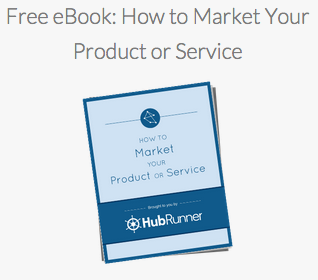How to Develop an Actionable SEO Plan
Your SEO campaign needs a plan. Sometimes, developing an SEO plan seems like an insurmountable task. Making your SEO strategy actionable doesn’t have to be a nightmare for you!
Here’s an easy guide to developing an actionable SEO plan:
Document Your Plan
Write your SEO plan out. Get started by identifying what you want out of your plan. That way, any changes you’d want to make in the future are simple fixes for you. You can make big picture decisions, like whether you want to outsource parts – or the majority – of your SEO plan.
Develop Measurable Goals
With so many different ways to plan out your SEO strategy, you might find varied results from your endeavors. Keep up with how your SEO plan is performing in relation to your goals.
Applications like Google Analytics can help you track how your SEO plan is going.

Generate Your Keywords
There are many different programs, companies, and methods to generate keywords for you. Hittail is a great program that provides a steady stream of keywords to base your SEO plan around.
It’s important to have a consistent keyword output to help keep your SEO plans moving forward and your content great.
Pick the Right Keywords
After you get your keywords generated, you need to decide how to pick the right ones. Picking your keywords can seem difficult, but there are ways to help make that decision.
First, you want to think about your target audience. Who are you expecting to search your keyword? Consider developing buyer personas to help gear your keyword strategies. Once your buyer personas are created, you can focus on what specific demographics and industries might search what.
Then, you need to decide if you want to use long-tail or short-tail keywords. Short-tail keywords are nice because it has a more broad appeal. People are more likely to search “family lawyer” than “most affordable family lawyer in New York.” However, because of that, ranking for “family lawyer” is significantly more difficult.
On the other side, “most affordable family lawyer in New York” is most likely going to be way easier to rank for because there are fewer companies competing for those rankings.
Onsite SEO
As you make your posts, pages, or otherwise, you need to make sure your pages are optimized onsite. For this part of your SEO plan, you want to use an onsite SEO plugin, like Yoast, or other helpful SEO tools.
We wrote a guide to writing an SEO blog, called the Keyword-focused Approach, that covers how to write a blog post to compete on the search engines. Keep writing these posts powered by onsite SEO, and you will start to see the difference in your SEO plans.
Promote Yourself

Social media is key to any SEO plan. You worked so hard on selecting your keywords and writing your SEO focused posts. Share them with your followers!
It’s imperative that you attack your SEO plan both on the search engines and on social media. SEO Specialist Lee Odden says, “SEO can deliver content-rich answers to buyers at the moment of need, and social media can provide the means to connect and engage. Both rely on content to achieve success.”
By offering both solutions to potential customers, you are broadening the ways in which they can connect with you. Be as accessible as possible.
Evaluate Success
As you monitor your SEO plan over time, you can start to see what works and what doesn’t. SEO is a process. It can take awhile to get the results you want and see the big picture.
Looking at your campaign through services like Moz can help you identify the effectiveness of your SEO plan.
Keep Learning
The rules of SEO constantly change. Best practices five years ago are totally out the window! Recently, Google announced that responsive websites will be indexed higher on their search engine.
Keep learning about SEO, and your future SEO plans will be even more exceptional. If you want to learn more about SEO, give the experts at HubRunner a call!



Comments are closed.